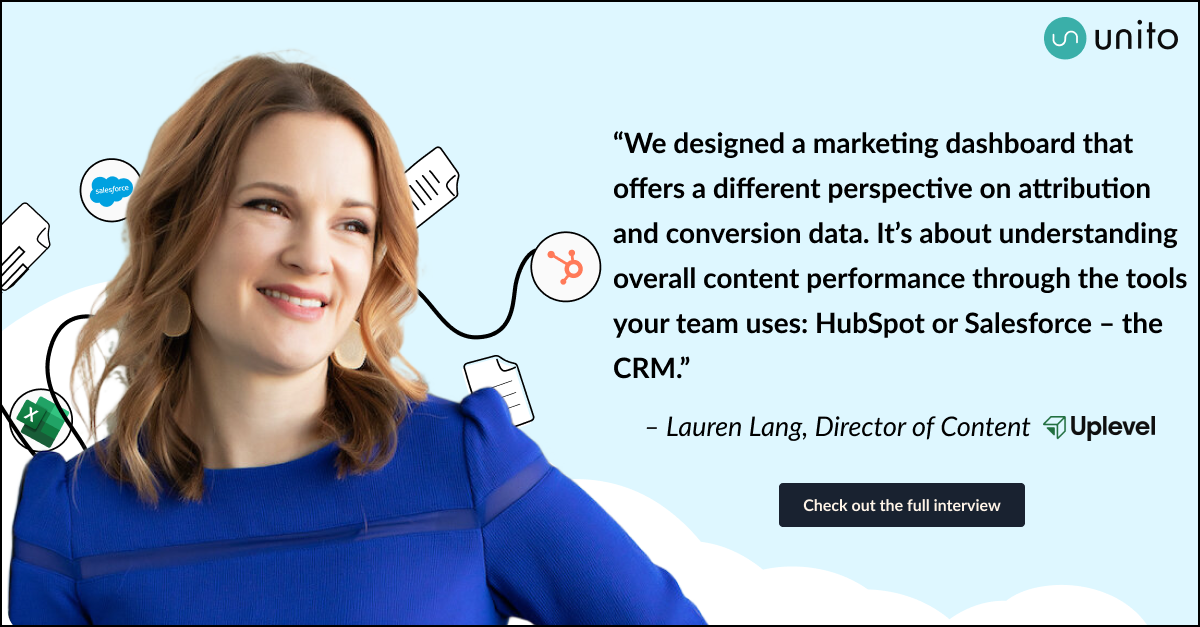What Is CRM Software and Which One Should You Use?
As businesses scale, keeping track of customers becomes harder and harder. Collecting, managing, and analyzing customer data is an important part of building relationships, generating revenue, and growing as a business. This is true for all organizations, from B2B companies to SaaS enterprises and real estate agencies. While a Rolodex used to be the preferred method of keeping track of customer info, today’s methods are a bit more sophisticated. The most powerful CRMs on the market today include Salesforce and HubSpot.
In this post, we’ll explain what CRM software is, why your teams need their own, and the most effective CRM platforms available today. If you deal with customers in any capacity, this post is for you.
What is CRM software?
CRM (customer relationship management) software is any tool or platform that allows businesses to record, track, organize, and access their customers’ information. The key differentiator between these platforms and other methods of managing customer info is that CRM software keeps all of this data in one place.
Anytime anyone in your organization interacts with a customer any relevant information from the interaction will be recorded in the CRM database. This provides a valuable, concise, and live resource that helps inform any future interactions and communication with the customer.

When trying to choose a CRM platform for your organization, some features you’ll want to look for include:
- Customization: Every business is unique, so it’s important that a CRM platform allows for custom workflows and features. Besides allowing you to customize certain areas and fields, your team may also find value in CRM software that includes access to APIs that allow even further customization and integration with your current business solutions.
- Workflow automation: Streamline your process with CRM software that can automatically fulfill certain tasks and actions. For example, certain CRM platforms will automatically send a follow-up email or message to customers after a designated amount of time (24 or 48 hours, for example).
- Third-party integration: Save time and effort by choosing CRM software that can be integrated with your existing digital solutions. For example, Salesforce gives users access to their AppExchange, where you can sync Salesforce with other solutions such as DocuSign, Asana for Salesforce, Highspot, and SurveyMonkey.
Why teams need CRM software
While a spreadsheet system might work at the beginning stages of a business, as an organization grows there is a definite need for CRM software.
Here are just a few of the benefits of CRM software:
- Centralized information: Instead of having a bit of info on a customer in a spreadsheet, other info in a salesperson’s email, and sales history in another database, CRM software centralizes this data so it can be accessed by anyone at any time.
- Added transparency: CRM software empowers the sharing of information across departments, boosting communication throughout your business. For example, your email marketing team has access to a customer’s history the same way your salespeople do. Information is shared freely (but securely) which clears up time for employees to focus on other aspects of their job.
- Enhances customer satisfaction: Salesforce found that companies with CRM software see 45% more customer retention than those without. With consistent and personalized interactions empowered by CRM software, your customers are provided with a positive experience — no matter where they are in the sales cycle and which department they’re dealing with.
- More sales: This improved customer satisfaction is linked to an increase in sales and revenue. According to Salesforce, companies who use CRM software see their leads grow by 44% — and their sales increase an average of 37%. The more information and context a salesperson has, the greater their chance of securing a sale and boosting revenue.
As you can see, the benefits of CRM software are hard to ignore. Now, how can you choose the right CRM platform for your business?
The 6 best CRM software
Below, you’ll find some of the best examples of CRM software on the market, along with common pairings for CRM integration across your tool stack.
Salesforce
Used by more than 150,000 companies around the globe, Salesforce is something of a CRM software pioneer. It offers countless innovations, including lead and contact management, sales opportunity management, workflow automation, customizable dashboards, mobile app, and AI capabilities. And, if you ever need any help with the platform or are looking to scale up your skills, Salesforce’s online resource portal has scores of thorough reports, guides, how-to videos, blog posts, and a free online learning centre (amongst a number of other tools). And if you need to integrate it with other tools, you know where to look. Try these popular Unito integrations:
- Salesforce + Trello
- Salesforce + Zendesk
- Salesforce + Google Sheets
- Salesforce + Google Contacts
- Salesforce + Jira
HubSpot
With a freemium model aimed primarily at smaller businesses, HubSpot CRM has a range of add-ons that makes it appealing for larger organizations as well. With four core components, HubSpot features the Marketing Hub (focusing on lead generation, marketing automation, and robust analytics), the Sales Hub (focusing on advanced CRM, configure-price-quote (CPQ) functionality, meeting scheduling, and quotes), the Service Hub (focusing on customer service/help desk tickets, feedback, and a knowledge base), and the CMS Hub (focusing on content management with a drag-and-drop editor, SEO recommendations, and website themes). You can also integrate HubSpot with the rest of your tool stack using Unito.
Try these popular Unito integrations:
Zoho
Trusted by more than 50 million users globally, Zoho provides a completely customizable, end-to-end CRM solution for small to medium businesses. With a dynamic suite of integrated web and mobile applications, Zoho lets you manage, connect, and automate business processes across your organization. From pipeline management to automation, Zoho also features an interactive link to your CRM data through Zia, their dedicated AI.
Freshworks CRM
Previously known as Freshsales, Freshworks CRM uses AI-based lead scoring, phone, email, activity capture, and more to enhance your business’ efficiency. A 360 degree customer management system, Freshworks features multiple customization options (such as sales activities, modules, and fillable fields), a number of automation options (like task management, workflows, and sales sequences), and multichannel communications methods.
Zendesk Sell
Built specifically with ease of use and streamlined onboarding of sales reps in mind, Zendesk Sell removes any overly complicated features so your team can always access, analyze, and collaborate on relevant deal data — without the distractions. Removing unnecessary admin tasks, Zendesk Sell lets your sales team focus on generating revenue and actually making sales. One of our favorite features? Zendesk Sell’s Smart Lists which help you “segment and filter your leads and deals in real-time, so you can stay organized and spot opportunities.”
Pipedrive
Pipedrive is a popular customer relationship management (CRM) used by over 95,000 companies to supercharge their sales workflows and close more deals. It’s designed by salespeople and made for salespeople, so you know your sales team is getting the features they need. It’s an all-in-one platform that makes selling your products and services a more streamlined, powerful experience. You can also use Unito to integrate Pipedrive with other tools.
- Pipedrive + Google Sheets
- Pipedrive + Jira
- Pipedrive + Mailchimp
- Pipedrive + Microsoft Excel
- Pipedrive + Slack
Stay in touch
With the right CRM software, previously siloed teams across your organization have a dedicated space to share and access valuable customer information. Increased transparency, a growth in sales, and happier customers are just some of the benefits you’ll see once your business implements a CRM system.


